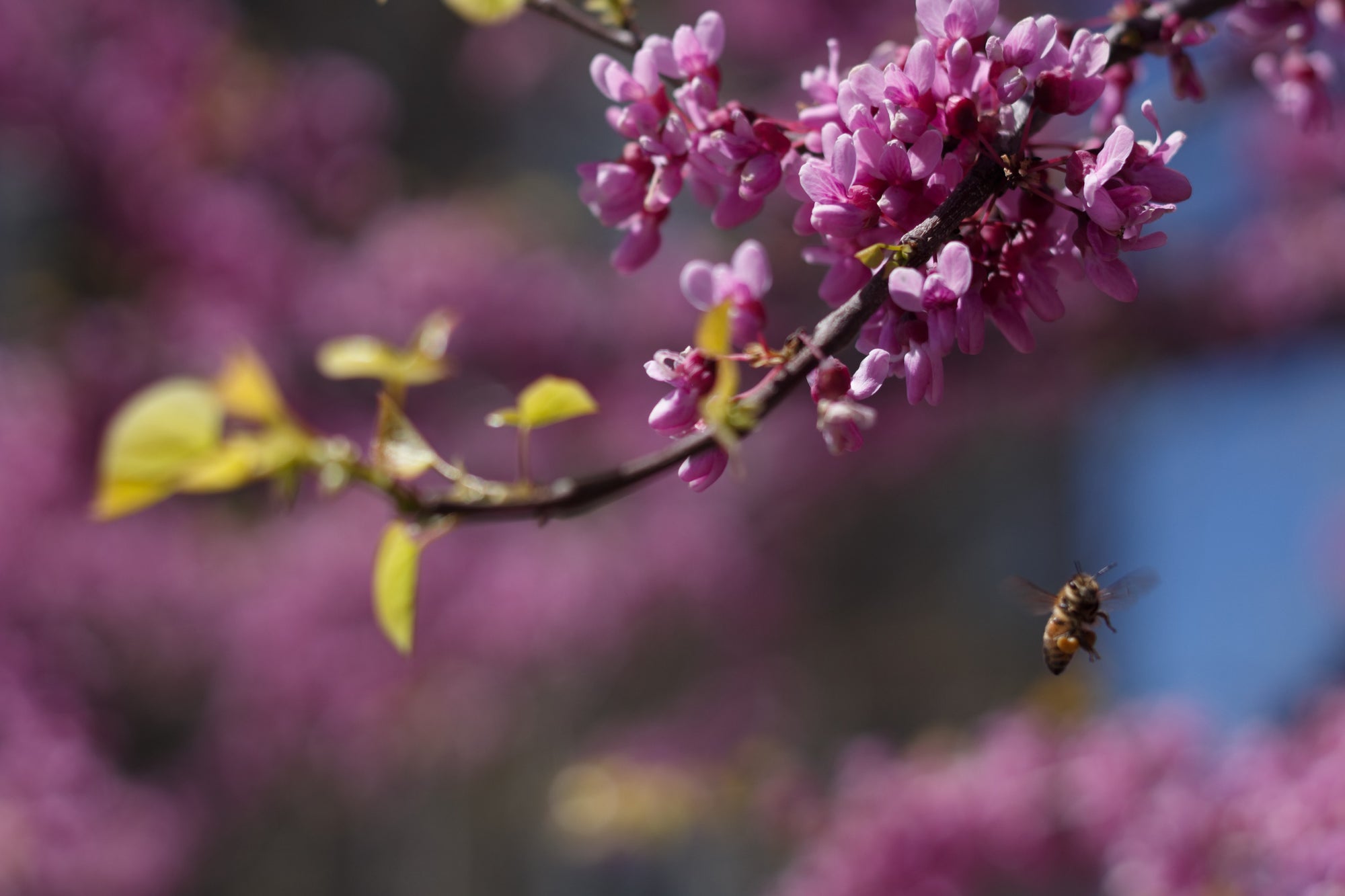The Importance of a Pollinator-Friendly Garden and How Boric Acid Can Help
•Posted on February 28 2018

Most people wouldn't think twice about applying pesticides to their garden when the plants aren't being produced for consumption.
After all, as long as you aren't planning to eat what you're growing, it shouldn't matter what you apply to keep pests away, as long as they help your plants thrive.
This explains the popularity of toxic pesticides like sprays and granular varieties aimed at killing ants, beetles, and other insects that prey on plants, even when they are harmful for human consumption.
This doesn't take into account another, unintended consequences of insecticide application in home gardens—these products repel pollinators.
Today we're going to discuss why it's important for your garden to be an inviting place for pollinators and what you can use instead of insecticides to keep harmful insects away without also deterring insects like bees and butterflies.
What is a Pollinator and Why Are They Important to Plant Health?

Pollination is a unique process in which animals help a plant reproduce by carrying pollen from the male part of a flower, the stamen, to the female part of the same or a different flower, the pistil.
When animals, mainly birds, and insects feed on the nectar of the flower, they pick up pollen and transport it to the next flower that they encounter, allowing plants to reproduce.
When you think of the term "pollinator," you probably think of the most common—bees, butterflies, and hummingbirds, but there is a list of lesser-known pollinators as well: wasps, flies, moths, beetles and larger animals like bats, squirrels, rodents and even gecko.
Put simply, to discourage pollinators from your garden is to lose a percentage of your plant population each year.
When plants aren't reproducing, they don't repopulate year-to-year.
This means you will have to spend more money on new plants every year - even with perennials to a degree.
The Dos and Don'ts of Encouraging Pollinators

Encouraging pollinators to make a home in your garden may seem as simple as paying attention to what products you're using on your soil and on your plants.
DO Use a Natural Insect Repellent
Most chemical pesticides and insecticides don't discriminate, so there's no chance that you'll find an inorganic product that, say, doesn't kill/harm honeybees but harms Japanese beetles or other plant-eating pests.
For this reason, using a natural insect repellent, in your garden, is best.
DO Use a Natural, Water Soluble Fertilizer
Some fertilizers can also turn away insects and other animals looking to cross-pollinate your plants, so it's important to use fertilizers and nutrient additives that are easy on all living creatures, not just plants.
DON'T Use Harsh Chemicals in Your Garden
When you don't use an eco-friendly fertilizer or insecticide, you risk harming more than just the insect and animal population around your garden.
Chemical insecticides can leach nutrients out of the soil. Chemical fertilizers can do more harm than good.
There are several other ways to encourage pollinators to visit the flowers and plants in your garden. To read more about it, continue here.
How to Improve Soil Quality and Keep Insects Away

By now you've probably assumed that there's just no way to manage your soil's nutrient content and your garden's insect population without using harmful chemicals. Luckily, there are solutions to both these issues.
First, there are plenty of options in the way of eco-friendly fertilizers on the market that won't harm your garden's appeal to pollinators.
You just need to ensure that the product you’re using is natural and pure.
The issue of repelling harmful insects while keeping the beneficial ones around is a bit more complicated.
The solution? Natural, water-soluble Boric Acid.
Boric Acid is a natural product that when diluted can provide twofold benefits, both to your insect population and the nutrient-rich quality of your soil.
- Diluted Boric Acid is effective as a natural insect repellent. It keeps grubs and beetles away from the leaves and the soil without repelling bees, butterflies and other pollinators from the flowers of your plants.
- Boric Acid is also an effective water-soluble fertilizer. The nutritional need that plants have for Boric Acid is extremely small, but when deficient, it is easy to see. Diluting Boric Acid to a very low concentration and applying to plants will make a visible difference.
Our Boric Acid is 100% water soluble and 99% pure, delivered from organic Boron – purchase your own, today!
Related Posts:
Comments
0 Comments
Leave a Comment